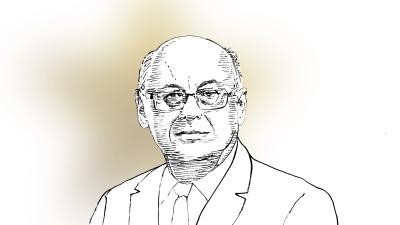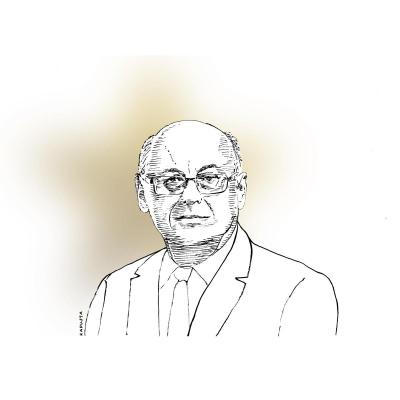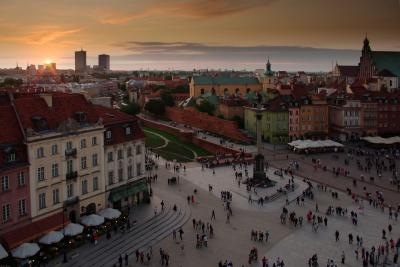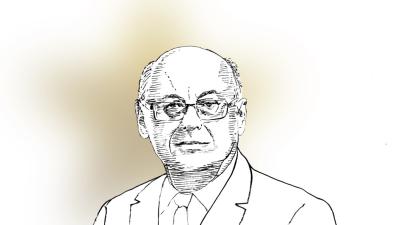On 20 March, Prime Minister Mateusz Morawiecki gave a very important speech at the University of Heidelberg.[1] It is worth comparing it with President Emmanuel Macron’s speech at the Sorbonne in 2017 and with the address of Chancellor Olaf Scholz at Charles University in Prague at the end of August 2022. It is worth confronting the arguments and proposals in these speeches. I think that the speech of the Polish Prime Minister was listened to very carefully by those who decide – or want to decide – about European policy. But it was ignored not only by them, but also by the so-called Western media.
The exception was the voice of Bernard Guetta.[2] This member of the “Renew” political group, a French Member of the European Parliament, former journalist, and correspondent of Le Monde in Poland in the eighties, stands out from other MEPs and officials of the European Commission, not only with his knowledge of Poland and the whole of Central and Eastern Europe (which is not difficult) but also with broader horizons. Today, his reflections on the EU and Europe are not limited to repeating common opinions. Currently, he writes for Polityka, once a weekly magazine of enlightened communists supporting the martial law of General Jaruzelski; today, post-enlightened post-communists transformed into liberals.
Guetta considered Prime Minister Morawiecki’s speech groundbreaking and requiring serious dialogue: “The Heidelberg address marks a turning point. Germany and Spain, France and Italy, the Benelux countries and the Scandinavians, Greece and Portugal, Romania, the Czech Republic, and the whole of Central Europe must respond to it as soon as possible, warmly, positively, getting to the heart of the matter and taking Poland at its word.”
Indeed, a serious discussion with the theses of Mateusz Morawiecki’s speech would serve well not only Polish-French relations but Europe as a whole. Europe needs a French-Polish locomotive.
Unfortunately, there was no answer. In general, since 2015, no meaningful attempt has been made to have a serious conversation with Poland. And a serious conversation is not lecturing or being on a high horse about Central and Eastern Europe without much knowledge about it.
Regrettably, many politicians in European countries have not noticed that the times of clientelistic politics of Poland are a thing of the past. Tusk’s Poland will not come back. Today we also know that our self-appointed educators – including Europe’s chief preceptor, Angela Merkel – were wrong. We know how bad decisions they made. We all pay their costs. Ukraine pays in blood. So, instead of expecting that once again a willing yes-man will take over the government in Poland, instead of ritually declaring that Poles – read Lech Kaczyński and the Law and Justice party – were right when it comes to the geopolitical situation of Europe and the assessment of Russia, we should finally start listening to our arguments and begin a serious conversation.
A serious conversation is not repeating stupidity and slander after the “defenders of democracy” in Poland. Indeed, so many of these so-called “defenders” have been completely compromised that it is worth understanding that they must be treated at least with caution. Unfortunately, only the war finally made people stop believing in these exaggerated-to-absurdity stories about “authoritarian” Poland.
According to Bernard Guetta, this “turning point” in Polish policy towards the EU is Mateusz Morawiecki’s statement that Europe should be able to defend itself. The prime minister postulates that European countries “should be so strong militarily that in the event of an attack they do not need external help but can provide military support to others”, adding that: “Today this is not the case. Without American involvement, Ukraine would no longer exist. And the Kremlin would move on to its next victim”.
Guetta decided that the Prime Minister’s words were another way of expressing the French idea of “strategic autonomy”. If it really means it, then Poles can say: d’accord.
PiS has always thought so. I want to put in mind that Prime Minister Jarosław Kaczyński, many years earlier, in his speech for the “Heritage Foundation”, drew a vision of a common defence policy and even a European army. Polish politicians have repeatedly stressed that the European Union countries should significantly increase their defence potential. We support Commissioner Tierra Breton’s efforts to strengthen the defence industry. Poland can substantially increase the production of equipment needed by Ukraine and needed by Europe. The government is in favour of the EU’s “autonomous strategy” understood in this way. It is no coincidence that Polish PiS MEP was the main rapporteur during the works on the regulation regarding the creation of the European Defence Fund and one of the two main rapporteurs of EDIRPA (European defence industry reinforcement through common procurement act). In other areas too, such as energy, industry, raw materials, and digital policy, we are in favour of closer European cooperation and reducing Europe’s dependence on external supplies.
Bernard Guetta argues that “Poland and France are now in agreement on essential points, those that will make the Union a political union. This has not been said or heard enough: Poland has fully embraced the need for European defence, which is now on its way to unanimity in the Union”. And he states: “We are indeed moving towards a political union”. However, Poland believes that the current policy of the EU requires a profound change, not a continuation. As Prime Minister Morawiecki emphasised: “First of all, the policy of the Union must change. Not towards greater centralisation, putting power in the hands of a few key institutions and the strongest states, but towards strengthening the balance between the peoples of Northern, Western, Central, Eastern and Southern Europe. And to complete EU integration with the Western Balkans, Ukraine, and Moldova, in line with Europe’s geographical borders”. It is therefore impossible to agree with Mr Guetta’s statement that “the differences between us in terms of the degree of federalism that we should achieve, at what pace and time, and in what areas we should achieve it” were “in fact quite secondary”.
Poland also believes the EU should remain tied to the United States as its closest, indispensable ally. Russian aggression has shown how much this is needed. That is why the Polish Presidency in 2025 wants to devote much attention to repairing transatlantic relations.
Poland wants the EU to consider Poland’s interests better than before. It must be a Union that respects the principle of equality of the states that make it up and, does not exceed its competencies, does not interfere in their internal policy, culture, and identity, including the constitutional identity. When a debate on the disproportionate use of force by the police during protests in France was proposed during a mini session of the European Parliament in March this year, it was rejected, among others, by the votes of the ECR faction. Also, the Polish delegation mostly did not support this debate’s proposal, respecting France’s sovereignty. And did the French Members of the Renew Group show the same respect for Poland when more absurd debates were organised about it?
Bernard Guetta, who should be aware of how much nonsense was said in the European Parliament about Poland, writes that the current Polish government is “reactionary”. And yet he knows Poland too well not to know what associations such a language evokes. Well, “reactionary” in Poland was once Sanation, Home Army, and the Catholic Church and Solidarity. Cardinal Sapieha and Cavalry Captain Pilecki were reactionary. In fact, even Adam Michnik was once, a long time ago, when Mieczysław Rakowski’s “Polityka” set the criteria for progress, a reactionary. “Reactionary” was the whole “West”. We, Poles, have not yet managed to exhume all those murdered in the twentieth century in the name of fighting against “reaction”, and we would not like history to turn full circle. So I propose to give up this language.
We are convinced that a Europe of strong states, closely cooperating with each other, also politically and also, and perhaps especially, in the field of defence, is a much more realistic option than the superstate Europe. Prime Minister Morawiecki pointed out that the construction of such a superstate would lead to a crisis: “I warn all those who dream of creating a superstate managed by a narrow elite. If we ignore cultural differences, the result will be a weakening of Europe and a series of rebellions, and perhaps a new spring of nations like the one of 1848”. Revolts are already breaking out, mainly in France.
It is significant for us that President Macron, addressing the French ambassadors on 1 September last year, speaking about sovereign Europe at the same time, almost in the same breath, spoke about sovereign France, its strength and influence in the world, without seeing any incongruity in it.[3] Our German neighbours also do not see any contradiction between the construction of Germany’s power and sovereignty and the increasing centralisation and federalisation of the European Union. Probably even thinking that there is a feedback loop between these two goals. And they have strong empirical evidence for this from recent history. Well, we, Poles, are also interested only in such a sovereign Europe, capable of defending itself, which does not exclude the freedom, strength, and sovereignty of Poland.
[1] https://www.gov.pl/web/premier/wystapienie-premiera-mateusza-morawieckiego-na-uniwersytecie-w-heidelbergu
[2] https://guetta.blog.polityka.pl/2023/03/28/lokomotywa-francusko-polska/
[3] https://www.elysee.fr/emmanuel-macron/2022/09/01/discours-du-president-emmanuel-macron-a-loccasion-de-la-conference-des-ambassadrices-et-des-ambassadeurs.













Comments (0)